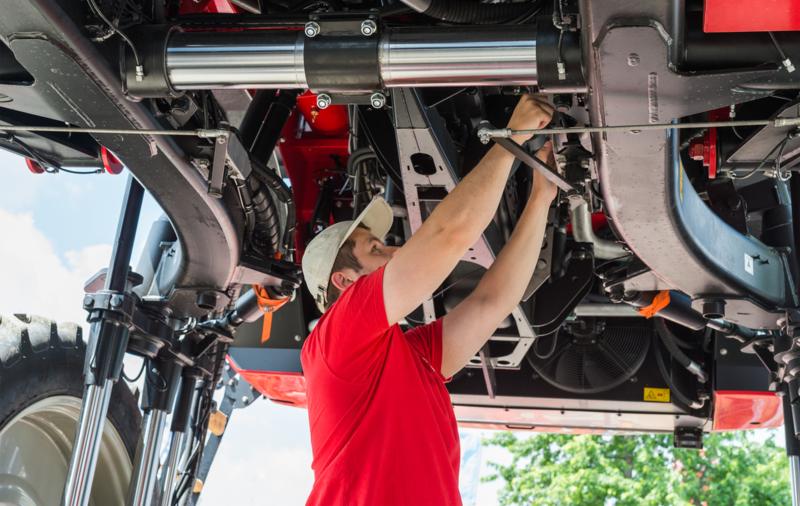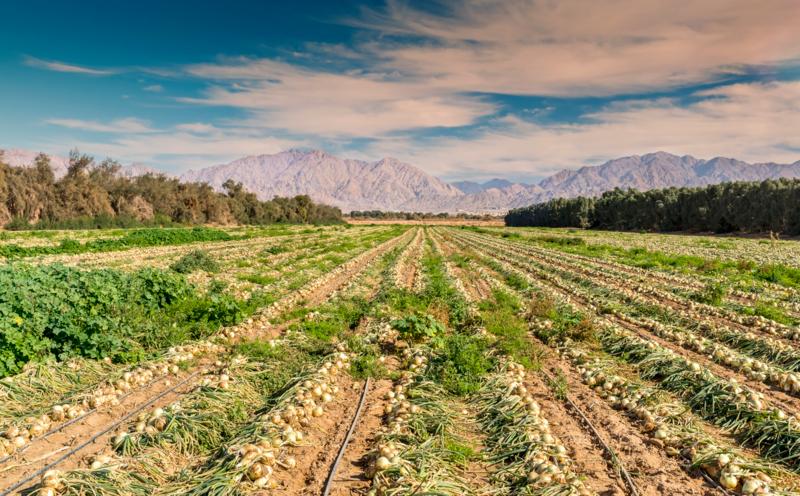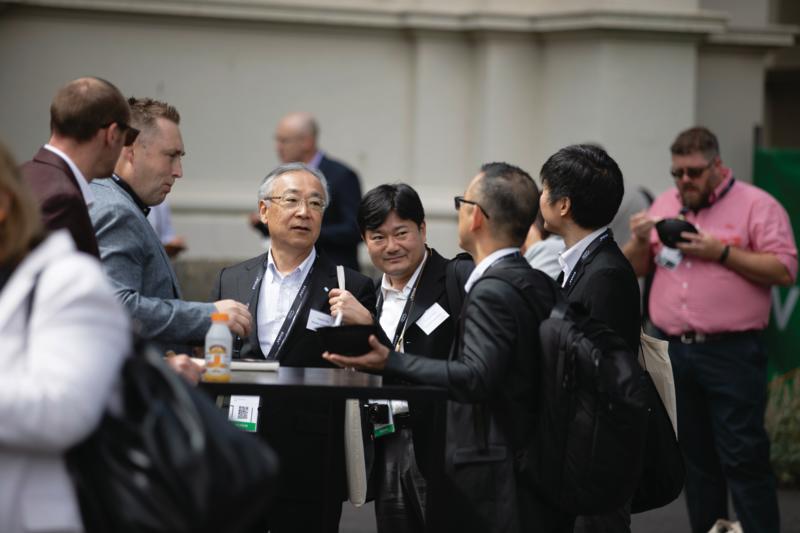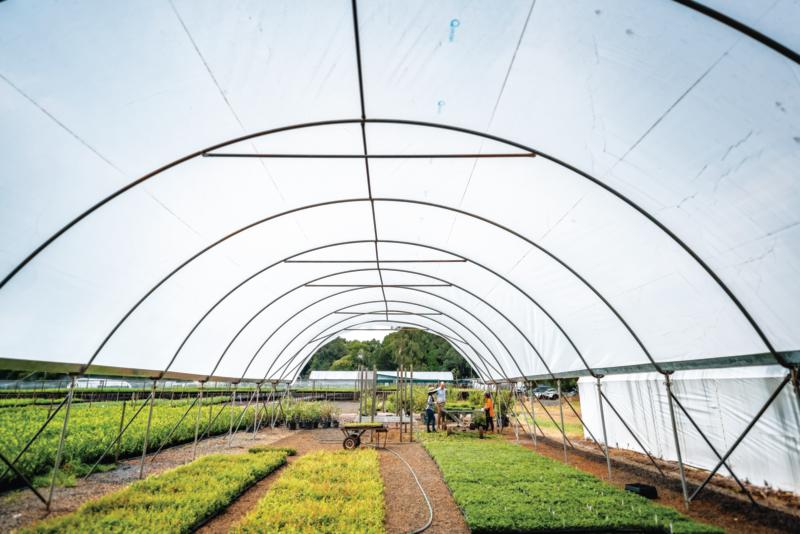Wagga Wagga’s tree-lined streets are brimming with opportunity. Whether it be small businesses, young entrepreneurs or budding university students, it’s a magnet for ag innovation and there’s a sense of opportunity in the air.
The Riverina city has been earmarked as a prime centre for investment. It launched an AgriTech Incubator Hub at Charles Sturt University’s Wagga campus in 2017, to help companies develop agritech innovations, and the hub was boosted by funding from the NSW government last year. This was followed by the awarding of a $500,000 federal government grant to Wagga’s global agrifood tech innovation company, Bridge Hub.
The rural centre’s education hubs have also blossomed, including the TAFE NSW Primary Industries Centre, a first of its kind that offers high-tech training for apprentice mechanics backed by tractor giants John Deere, Case IH and New Holland.
 The TAFE Primary Industries centre in Wagga offers high-tech training for mechanics, and is backed by major tractor companies. Source: Getty Images.
The TAFE Primary Industries centre in Wagga offers high-tech training for mechanics, and is backed by major tractor companies. Source: Getty Images.
Opportunities like these have encouraged young entrepreneurs to get more involved in the development of the ag industry and think beyond our own backyard. This mentality of global scalability, unbridled by tradition, was on full show at a two-day conference in Melbourne,
evokeAg Food Farm Future. Dubbed the ‘Tinder for thinkers’, the event at the end of February attracted the who’s who of agriculture and tech giants from more than 21 countries, all hungry to connect and share ideas on ways to build up the industry through tech start-ups, clever investment and collaboration.
Connecting the agricultural community key to innovation
Imagine this fruitful environment but every day – that’s Wagga, a dense collective of like-minded people in one place. These hubs are described as “human systems” by Xavier Rizos, Westpac’s innovation guru, like Silicon Valley or even Hollywood, where talent shines and people have the tools to connect.
During Xavier’s evokeAg masterclass, ‘Will the next Steve Jobs be an Australian farmer?’, he said agtech can deliver strong value propositions for farmers in the future – but the strategic risks inherent to farming, such as climate challenges and price volatility have roadblocked its progression.
Looking at alternative ways to overcome these challenges, like new technologies, data and industry collaboration, is where the disruption begins. It’s what Silicon Valley has become famous for and perhaps Wagga will, too. “You can’t think of a more volatile market than agriculture,” Xavier said.
RELATED: Can digital agriculture bring big rewards?
Isabelle Decitre, founder and CEO of ID Capital, added: “Focusing on start-ups is not high risk, though. High risk is to continue doing what we have been doing for the last 30 years.”
Bridge Hub, which is headquartered in Wagga with offices in Sydney and Israel, is using its $500,000 grant to accelerate its work: researching, testing and commercialising agtech products and processes.
Ethy Levy, co-founder of Bridge Hub who lives in Israel, said at the conference there’s great potential for investment in Australia – but it needs more exposure.
As the former Israel Trade Commissioner in Australia, Ethy has a solid understanding of the research and development opportunities between world-leading agrifood tech nations, such as Israel.
 Israel has a proud agricultural history and is a leading nation in agricultural innovation. Source: Getty Images.
Israel has a proud agricultural history and is a leading nation in agricultural innovation. Source: Getty Images.
Her contribution was critical in the creation of the Australian government’s Landing Pads program, run by Austrade, to provide market-ready Australian start-ups with access to the world’s best innovation and start-up ecosystems.
Ethy believes more collaboration, like that in Wagga, is needed to gain momentum. Communications also need to be accessible for the next generation of inventors. “In Israel there is one WhatsApp group used by up to 300 people, who share agricultural-related ideas, projects and connect for investment opportunities,” she said.
“Agtech start-ups need to be sexy and championed within the country. We need to find those young ambassadors and make them celebrities. Start-ups must be thinking about the global economy, not just Australia.”
Without global thinking, the road to commercialisation may be that little bit steeper – but Wagga is off to a good start, according to investors.
RELATED ARTICLES ON INNOVATION:
-
Virtual fences to improve labour efficiency for farmers
-
Solar panels on farm dams set to cut energy costs
-
Winemaking family finds export markets fruitful
Agricultural start-ups must serve the global market
Singapore-based venture capitalist Eugene Wong agreed at the conference that most start-ups in Australia are looking at solutions or platforms for the Australian market. “We want to invest in start-ups that can serve the world globally,” he said. “The ideas are good and meet the mindset, but the inventors are complacent in Australia and happy with their lifestyle.”
 The evokeAg event attracted foreign investors from China and Singapore eager to do business. Source: evokeAg.
The evokeAg event attracted foreign investors from China and Singapore eager to do business. Source: evokeAg.
This sort of mentality restricts Australia he said, and with 415 million farmers in China, he’d like to see more start-ups that serve the Chinese market.
RELATED TRADE ARTICLES:
-
Newcastle set to be export hub
Another speaker, Australian-born Spencer Maughan of Finistre Ventures, a specialist food and agtech venture capitalist based in Silicon Valley, believes Australia is a global centre of excellence for innovation, as well as for the trialling and pushing out of products – but a national commitment to R&D investment is needed.
When it comes to the availability of data, Spencer said: “Australia in itself is one of the greatest advantages you have. It’s a massive place – so the opportunity for all these people being educated here, in data science, is actually quite large in agtech.”
Strong advocate for Australia’s farming and food sector, Anthony Pratt, CEO of Visy, further addressed the importance of ongoing innovation and technology within Australia to secure its place in the global market. “I believe there is no industry with a greater future than growing and selling Australian food,” he said.
RELATED ARTICLES ON FOOD PRODUCERS:
-
Blueberry farmers shift to smoother supply chain
-
"Fruit growers should focus on quality"
-
Industrious beekeepers nurture thriving business
“But we must invest in technology to grow more with less, meaning more profitability. While everyone believes agtech is the future, we currently only spend 12c per person, per year in Australia in agtech, whereas in the United States it’s $5.80 per person, per year – so that’s 50 times more in America.”
Agricultural investment a must for industry growth
Venture capitalists are showing a growing interest in the agriculture industry with agtech investment reaching a record $1.7 billion in 2017. But more investment is needed, said Anthony, as we approach the limit of water and arable land.
“We only grow enough in Australia to feed 100 million people in this big Asia region of four billion people. So we might as well focus on those food products that are high value-added and play to Australia’s strengths of food safety and quality, and which command a better price.
 Food growers in Australia, like Mountain Blue Farms, are on the doorstep of a huge Asian market. Photo by: Gethin Coles
Food growers in Australia, like Mountain Blue Farms, are on the doorstep of a huge Asian market. Photo by: Gethin Coles.
“Investing in technology on the farm and in food, it’s not just a nice-to-have, it’s key to making sure that we’ve got great fresh food and vegetables at affordable prices,” he said.
The country town may not be as glamorous as California but it’s buzzing with agtech and young minds ready for a challenge.
5 key themes on agriculture from evokeAg
- Data is the new oil. Agriculture is set to overthrow the economic boom of mining.
- Endurability is becoming the new sustainability. As climate tightens its grip, farmers think how we can produce more with less.
- Value-added products instead of commodity based means higher return on investment.
- Shifting mindset from consumer demand to efficient production with a focus on waste.
- Collaboration between alternative agriculture (plant-based ‘meat’/vertical farms) and traditional farming (livestock/crops).